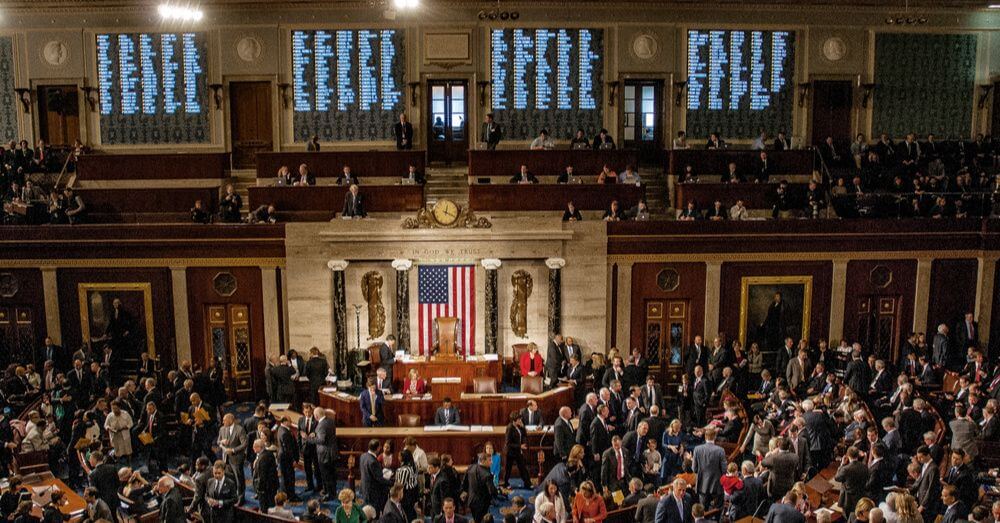
The two bills will now be subject to a vote in the House of Representatives
Two pieces of legislation regarding the in-depth analysis of blockchain technology in government have received the go signal from the Committee on Energy and Commerce, this paves the path for their vote in the House of Representatives.
Darren Soto, Democratic Representative of Florida’s 9th District, announced that after almost two years of their efforts, the Committee on Energy and Commerce passed the Digital Taxonomy Act. The Committee also approved the American COMPETE Act. The two pieces of legislation will now be brought to the main floor of the US House of Representatives for a vote.
If it is passed in Congress, the Digital Taxonomy Act would instruct the Department of Commerce, in consultation with the Federal Trade Commission (FTC), to conduct and submit a study regarding the state of blockchain technology to several committees within the House of Representatives as well as the Senate. It would also mandate that the FTC report on recommendations regarding unfair and deceptive practices that are related to digital tokens.
Meanwhile, the American COMPETE Act would mandate the Department of Commerce to review the study and send a report to Congress regarding the state of artificial intelligence, blockchain, quantum computing and other emerging industries.
Soto sponsored the Digital Taxonomy Act with Republican Representative for Kentucky Brett Guthrie and Democratic Representative for California Doris Matsui. He is one of the key figures that is shaping policies on cryptocurrency inside the Congress, and has often expressed his concern that the government’s lack of awareness regarding emerging technologies will hold the country back from building a globally competitive cryptocurrency industry.
“That’s our biggest obstacle. It’s not partisanship — it’s ignorance that we battle against. These reports familiarize everybody,” he stated.
Soto believes that the progress they have witnessed is a first step to making that change.
“We definitely want to get into more substantive legislation. But for right now the appropriations and getting the first reports done by the Department of Commerce, the FTC, the DoD, and others are going to acclimate Congress because a lot of folks don’t understand the technology,” he explained.
The congressman also highlighted a handful of legislative victories in the sector, such as when the US Department of Agriculture submitted a proposal to amend its rules on organic products so as to include implementing blockchain technology in enhancing its supply chain.
Soto, alongside a few other members of Congress, also sent a request to the IRS to avoid overtaxing rewards from Proof-of-Stake blockchain technologies.

